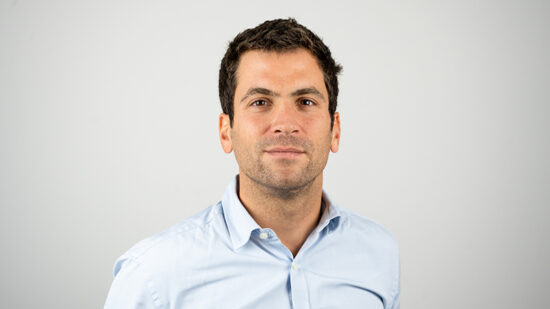Franklin Templeton’s Sehgal buzzes about Korea’s tech space
South Korea’s transition from a manufacturer of durable consumer electronics to a frontrunner in new-age tech such as semiconductors and electric vehicle batteries has presented itself as a ripe opportunity for stockpickers, according to Franklin Templeton’s Chetan Sehgal.
Sehgal, portfolio manager of the Templeton Emerging Markets investment trust, said the country is “at the forefront of innovation”, boasting the highest per-capita patent filings globally. He added that South Korea is also “one of the very few markets globally where the internet ecosystem is dominated by domestic companies”.
One stock held by the trust which is capitalising on this trend is multinational insurance company Samsung Life. Founded in 1957, Sehgal said it is now the largest life insurance company in South Korea.
“With a customer base exceeding 10 million, Samsung Life is the undisputed leader in its home market – a dominant position that acts as a formidable barrier to entry.
“Beyond South Korea, the company has strategically expanded its footprint across eight countries in Asia, the US and Europe. This international growth underscores the company’s ambitions to increase market share globally.”
While Samsung Life suffered a downturn during the mid-2000s due to a range of guaranteed return policies amid a low-interest rate environment, Sehgal said recent product development and diversification initiatives have sparked “a significant turnaround” in share price performance. He added that higher interest rates have also bolstered the profitability of existing products.
“The strategic shift toward health-related products has been particularly successful, with health and wellness insurance, pension plans and customised annuity products forming part of its diversified portfolio – all under a trusted Samsung Life brand name,” he said.
“Moreover, the company is embracing digital and technological innovation. The adoption of cutting-edge virtual reality tools enhances the customer experience and delivers services cost-efficiently. The company is also exploring ways to convert some of its 40,000 office-based staff into mobile operators, further streamlining operations while improving customers service options.”
Elsewhere, Sehgal is favourable on the prospects for SK Hynix, which manufactures memory components for mobile phones, data storage and memory cards. He said it is currently the world’s second-largest chipmaker and the sixth-largest semiconductor globally, with manufacturing facilities in Korea, China, Taiwan and the US.
“The memory sector is currently experiencing an upturn, fuelled by the surging demand for high bandwidth memory, particularly in AI applications,” the manager explained. “SK Hynix has seized a leadership position in this latest generation of high-bandwidth memory market, securing key supply agreements with industry leaders.”
And, as memory-related technology improves, Sehgal pointed out that manufacturing processes become more intricate, which will reduce product supply.
“Consequently, prices in this historically cyclical industry are rising, boding well for the leaders producing high-quality memory commodities,” he said.
“We maintain our belief that memory companies will significantly benefit from the AI revolution, with SK Hynix leading the high-bandwidth memory segment crucial for AI applications, exerting a significant influence on the market.”
abrdn looks beyond TSMC in Taiwan
While small-cap and tech stocks have not been traditional hunting grounds for income investors, managers of the £344m abrdn Asian Income fund identify strong opportunity sets in both.
Roughly 15% of the investment trust’s net asset value is in smaller companies, while tech is its largest sector overweight.
“It might seem weird for an income fund from a European perspective to see so much in tech,” co-manager Yoojeong Oh said, “but we have a lot of good quality tech companies in Asia that are not only net cash in their balance sheet, but also offering great growth because they have dominant market share in the businesses they are in.”
It is difficult to find an Asia portfolio that isn’t invested in market-leading semiconductor business TSMC (Taiwan Semiconductor Manufacturing Company), and while abrdn Asian Income is no exception, Oh argues the Taiwanese market offers opportunities in tech beyond its largest stock.
TSMC is abrdn Asian Income’s largest position by some way, making up 12% of the portfolio at the end of August. However, the trust also invests in Taiwanese stocks such as Taiwan Mobile and Sunonwealth.
“Sunonwealth is a Taiwanese small-cap company which makes the cooling fans that go into data centres. With the growth of information processing and machine learning, such as ChatGPT, the world needs more and more data centres, which then need more and more cooling,” Oh said.
“Sunonwealth is one of three companies globally that can produce these specialised cooling fans. They have a net cash balance sheet and a good ability to pay dividends.”
“I think that’s a good example of a company that starts in that small-cap space, but perhaps in a few years will be in the mid-cap bucket.
“We are constantly trying to refresh that small-cap portion of the fund to make sure we keep holding those growers.”
On small caps, Oh said it’s an “interesting place” to find new ideas. “Even the small-cap companies we invest in contribute to both net asset value growth and dividend yield.
“Because Asia went through a debt crisis in the late-1990s, there are actually a lot of good mid-cap companies in the region that are family-owned, very conservative and very protective of their balance sheets. We get good quality mid-cap companies that pay us that dividend and hold resilient balance sheets.”
She added that generally speaking, balance sheets in Asia are much less leveraged than in US and in Europe.
“That provides good flexibility in terms of the safety of dividends going forwards. Because we have these stronger balance sheets, we have good free cashflow-generative companies and that is across the market cap spectrum.
“We are really trying to play into that theme of accessing the growth in Asia, but also accessing that growing dividend story as well.”
abrdn Asian Income currently trades at a 13.2% discount to NAV, according to the Association of Investment Companies, and has a dividend yield of 5.29%.
Could Turkey be the next big EM story?
With poor performance from the Chinese equity market weighing on returns for typical ‘one-stop shop’ emerging market strategies over the past few years, managers of the Barings Emerging EMEA Opportunities investment trust believe investors are viewing their EM exposure through a more regional lens.
The trust aims to generate positive alpha by offering exposure to smaller names in typical emerging market benchmarks, in eastern Europe, Africa and the Middle East.
“New shareholders in the trust, particularly institutional, are looking at emerging markets from a regional perspective again versus globally. That’s something we’ve seen for the past two years now,” said co-manager Adnan El-Araby.
According to El-Araby and fellow manager Matthias Siller, one of the regions that could benefit from this realignment is Turkey.
“We think there is a potential opportunity for Turkey to come back into the fold as a credible emerging market investment,” El-Araby said.
The country is experiencing a painful period for the local economy as it navigates the trade-off between job creation and bringing down rampant inflation, added Siller.
“We’ve taken our foot off the gas for now to wait and see, because this is the ultimate test for the political willingness to see a more orthodox monetary policy. In the past, Turkey has had a super-expansionary monetary and fiscal policy.
“We see a lot of opportunities there at the political, stock and sector level. The stock exchange itself is one of the most liquid in the world, so we also attracted by that.
“I think it will become a much bigger story in 2025 from an EM perspective.”
An example of the trust’s Turkey exposure can be found in local discount supermarket Bim. Siller said: “It’s a local name, it’s not like Lidl coming to Turkey and being very successful. Bim has been so successful that Lidl doesn’t come to Turkey. It was set up from scratch and built into the largest supermarket operator in Turkey with more than 10,000 stores and still growing. It’s a price leader, reinvesting margins into prices and not leaving any oxygen for the competition. It’s also been instrumental in driving inflation down.”
The trust’s investment process places emphasis on governance and the strength of management teams to be able to navigate the volatility that comes with emerging markets.
“[Bim] knows how to operate in Turkey,” El-Araby added. “It has manoeuvred not only the economic volatility we’ve seen in the past 10 years, but also the political volatility. It has managed its balance sheet and bought back shares; it also pays a dividend.
“It can communicate to the market. I’ve been looking at them for 15 years. Matthias has known them for over 20 years, so it’s almost exactly what we look for in a company.”
This article first appeared in the November issue of Portfolio Adviser magazine








